 Mamacita says: Hey, it’s THAT TIME again, so say “hello” to my annual post about how community school supplies are a terrible idea and are, in fact, contributing to the lazy downfall of our nation. . . . .
Mamacita says: Hey, it’s THAT TIME again, so say “hello” to my annual post about how community school supplies are a terrible idea and are, in fact, contributing to the lazy downfall of our nation. . . . .
School will be starting soon – or maybe it already has – for most kids, and each year at about this time I like to re-run this post about an issue that really, really makes me want to kill somebody and put his/her head on a post in the WalMart parking lot bothers me a lot: community supplies in the classroom.
When I was a little kid, one of my favorite days of the year (besides Christmas Day) was the day the newspaper posted the list of required school supplies, and Mom took us to Crowder’s Drug Store to buy them.
I loved looking at that list, and Mom always let me be the one who got to put the little checkmark beside the items as we put them in our basket.
Prang paints. Check. Paint pan. Check. Rectangular eraser. Check. Blunt-tipped 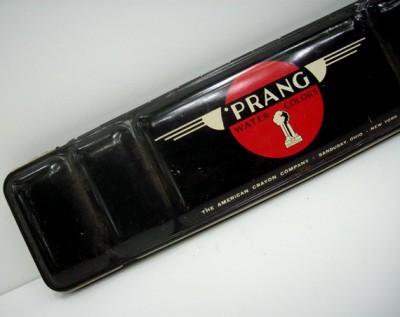 scissors. Check. Etc. Check.
scissors. Check. Etc. Check.
On the first day of school, I loved bringing my beautiful shiny school supplies into my new classroom, and I loved arranging them all inside my desk. I loved to look inside my desk and just savor the sight: all those cool things I could draw with and paint with and write with. . . and they were mine, all mine, and nobody else could touch my things unless I gave them permission. Me. I was the boss of my desk things. I took such pride in my school supplies, and mine were usually still looking pretty good even at the end of the year. They were mine, you see, and I had a vested interest in them; therefore, I took pains to take care of them. Back then, down in lower elementary, the school supplied only the special fat pencils and the weird orange pens.
I always envied the lucky kids with the giant 96-count Crayola box, so big it had the sharpener built right in, but I never considered helping myself to it. It wasn’t mine.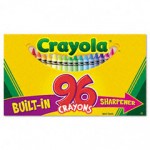
When my own children were little, I looked forward to Buying School Supplies Day with just as much delight as I did when I was a little kid. New binders. New pencils. And the most fun of all, choosing the new lunchbox. My own children loved the new school supplies, too. I think it is of vital importance that all children have their own school supplies; it is the beginning of them learning the pride of possession and the importance of caring for one’s own things in order to keep them for any length of time.
It’s not like that in many schools nowadays. I learned, to my horror and dismay, that many teachers do not allow their students to have their own supplies now; the little sack of a child’s very own things is taken from the child on that first day, and dumped into the community pot for all the kids to dip into and out of. There are no “my scissors,” there is only a rack or box of scissors for everyone. “Look, there are the scissors I picked out at Walmart; my name is engraved on them; I wish I could use them but they’re so cool, other kids grab them first every time. . . .” There are no more personalized pencils or a child’s favorite cartoon character pencils to use and handle carefully; there is only a bin of chewed-on germ-covered pencils grabbed at and used by everybody in the room.
And since nothing belongs to anybody, who cares about taking good care of them?
I fully understand that the community pot of supplies is much easier for a teacher to control. I wasn’t, however, aware of the fact that teacher convenience was any kind of issue here. I taught in the public schools for 26 years and I never expected things to happen for the convenience of me; that wasn’t why I was there.
I fully understand, too, that some children’s little sack of supplies won’t be as individualized or cool as another child’s sack of supplies. I know for a sad fact that some children will never have their own little sack of supplies, at least, not one brought from home. That’s life; that should not even be an issue. Some children’s shoes aren’t as cool, either; do we throw shoes in a box and let the kids take pot luck with those, too? I understand that in some classrooms, a child’s packed lunch is sometimes taken apart and certain things confiscated or distributed, lest some child have a treat that another child doesn’t have. When my kids were in grade school, my mother would occasionally stop by at lunch time with a Happy Meal for them – and for me! – and I was told this had to stop because other children didn’t have that option. Well, you know what, my children were often envious of another child’s dress or shoes or lunch or cool pen, but I would never have tried to ensure that other children would never be able to have anything my own kids couldn’t have. Good grief. Such insanity!
Teachers should keep an eye out for those kids who don’t have supplies, and the school should supply them, but after that point, they become the child’s own and he/she should be required to take good care of them, just as any and every kid should be required to take care of his/her things.
Children who take good care of their things should not be required to supply children who had their own things but didn’t take care of them properly. As a little child, I was horrified at the thought, and as a parent, I’m even more horrified. It was like a reward for being negligent! Every year, I donate tons of school supplies to a local school; I’m delighted to do this, and I recommend this to all of you. Perhaps, if schools have enough donated supplies, our little children will be allowed to keep their very own supplies once again.
When I was a child, I had very little that was my very own. Everything that was supposedly mine was expected to be shared with anybody else in the house that wanted it at any given moment. But at school? In my desk, in my very own desk, were things that were inviolably mine, and I can not even describe for you the sensations that went through me when I looked at those things that my teacher had ruled were mine and only mine. Kids who violated another kid’s desk were quite properly labeled ‘thieves,’ and they soon learned what happens when a person put his hands on property that was not rightfully theirs.
Things are very different now. I hate it. The rare teacher who takes the time and  trouble to allow his/her students to have their own things is often castigated by the other teachers who are taking the easy ‘community property’ route. Kids are sharing more than gluesticks and pencils, too; I don’t even want to THINK about the incredible pot-o-germs they’re dipping into daily. Gross. My child using a pencil some other child gnawed? I guess so, because teachers who don’t want to bother with a child’s private property are forcing the kids to dump it all in the pot for everybody to use. “Don’t be selfish.” “Share.” Well, you know what? I don’t like that kind of forced sharing. I had to share everything, EVERYTHING, and that little pile of school supplies was my only private stash of anything. I do not feel it was selfish, or is selfish, to want to keep school supplies that were carefully chosen, to oneself. Children who have their own things learn to respect the property of other children. Children with no concept of personal property tend to view the world as a buffet of free, unearned delights awaiting their grasping, grabbing hands. Both tend to grow into adults with the same concepts learned as children.
trouble to allow his/her students to have their own things is often castigated by the other teachers who are taking the easy ‘community property’ route. Kids are sharing more than gluesticks and pencils, too; I don’t even want to THINK about the incredible pot-o-germs they’re dipping into daily. Gross. My child using a pencil some other child gnawed? I guess so, because teachers who don’t want to bother with a child’s private property are forcing the kids to dump it all in the pot for everybody to use. “Don’t be selfish.” “Share.” Well, you know what? I don’t like that kind of forced sharing. I had to share everything, EVERYTHING, and that little pile of school supplies was my only private stash of anything. I do not feel it was selfish, or is selfish, to want to keep school supplies that were carefully chosen, to oneself. Children who have their own things learn to respect the property of other children. Children with no concept of personal property tend to view the world as a buffet of free, unearned delights awaiting their grasping, grabbing hands. Both tend to grow into adults with the same concepts learned as children.
This business of everything being community property in the classroom causes problems in the upper levels, too. Junior high, high school, even college students, are expecting things to be available for them without any effort on their part. Upper level students come to class without pencils, erasers, paper, etc, because they’re used to having those things always available in some community bin somewhere in the room. They have never been required, or allowed, to maintain their own things, and now they don’t know how to. The stuff was always just THERE, for a student to help himself to. And now that they are supposed to maintain their own, they really don’t know how. Plus, why should they? HEY, I need a pencil, Teach, gimme one. No, not that one, that other one there. Indeed,
Well, it worked down in the lower grades, with community property. You just get up and help yourself; everything in this room is for me, ain’t it? Gimme that pretty one, I want it.
But guess what, kids, it’s evil enough down in the lower grades, but it doesn’t, or shouldn’t, work at all when you hit the upper grades. I’d like to have a penny for every hand that tried to help itself to things on my desk, because, well, they were there. I’ve even had students who opened my desk drawers, looking for supplies. Not poor kids who didn’t have any; just a kid who didn’t bring any and expected everything to be supplied because, well, down in the elementary, everything WAS.
Oh good grief, teachers, let the little kids keep their own things, put their names on them, and learn how to be responsible for them. Secondary teachers and future employers will greatly appreciate it.
I know that in some cases, it’s not the individual teacher’s decision – it’s a corporate mandate. This is even more evil. It’s like a national plot to make future generations needy and dependent and reliant on others to fulfill all their needs. And don’t we already have more than enough of THOSE people?
Let me sum up, as Inigo Montoya would say: Community school supplies are  wrong on every possible level. Period.
wrong on every possible level. Period.
Parents, if I were you – and I am one of you – I’d buy the community bin stuff at the Dollar Tree instead of the overpriced educational supplies store in the strip mall that the school supplies newsletter instructs you to patronize. Send them to school and let them be dumped into the bins for mass consumption and germ sharing. Then you and your children go shopping and pick out the good stuff. If your school informs you that it’s against their policy for any of the children to have their own supplies, you inform the school that you don’t give a rat’s ass about such a policy; you did your chipping in and now you’re seeing to it that your children have their very own stuff and that you expect your children’s very own stuff to harbor no germs except your own children’s germs, which will be considerable, but that’s another topic. What’s more, if your children come home and tell you that their very own supplies are not being respected and are in fact being accessed by others without permission of their rightful owners, you should high-tail it to that classroom and raise bloody hell.
I am happy to see to it that all of the children in the room have adequate supplies, but I can’t stress strongly enough that each child needs and deserves to have his/her very own personal private stash of supplies that nobody else can ever touch. How can we teach our children to take care of things if they have nothing of their own to take care of? Again, I want to stress that no child should be without classroom supplies, but those who can’t supply their own and who are furnished with supplies should be required to take good care of them.
Do I seem overly obsessed about this topic? Darn right. The very concept of community school supplies makes me so furious I become incoherent. Which is apparently happening right now so. . . .
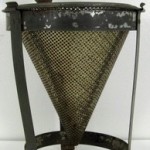 off the ground and run them through a special grinder to make the pulp. We can also buy commercially frozen pulp at any grocery store here, but it’s not fit to eat that way, and it’s best to use pulp you made, yourself, or that someone else just made. It keeps in the freezer for several years. My fantastic and generous Cousin C gives me persimmon pulp, fresh from her parents’ back yard, and I make homemade bread for her family. I think I get the better part of the deal.
off the ground and run them through a special grinder to make the pulp. We can also buy commercially frozen pulp at any grocery store here, but it’s not fit to eat that way, and it’s best to use pulp you made, yourself, or that someone else just made. It keeps in the freezer for several years. My fantastic and generous Cousin C gives me persimmon pulp, fresh from her parents’ back yard, and I make homemade bread for her family. I think I get the better part of the deal. persimmon pudding. I made some just today. Come on over.
persimmon pudding. I made some just today. Come on over.


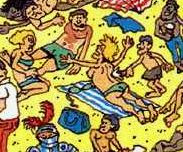
 excellent, although it didn’t sit well with administration. She spoke about high school ‘graduates’ for whom a diploma was nothing but a piece of paper that connoted untruths. She spoke about how an employer should have the right to assume that a diploma pretty much guaranteed literacy and general competence. She spoke about all the money big corporations were having to shell into remedial programs for employees who had diplomas, pieces of paper that represented four years of showing up and not much else. She spoke about how businesses would really appreciate a diploma that told the truth: that if a student had been graduated out of respect for really trying, the diploma should say so, discretely of course, but in terms that the business world would be able to interpret. If the student was just going through the motions of graduation for self-esteem’s sake, the diploma should say so. And if the diploma was rightfully earned because the student had become fully literate and generally competent and had genuinely and individually and truthfully learned how to care for himself/herself in the world in general, the business world should be able to see that kind of diploma and interpret it for what it was: a real diploma.
excellent, although it didn’t sit well with administration. She spoke about high school ‘graduates’ for whom a diploma was nothing but a piece of paper that connoted untruths. She spoke about how an employer should have the right to assume that a diploma pretty much guaranteed literacy and general competence. She spoke about all the money big corporations were having to shell into remedial programs for employees who had diplomas, pieces of paper that represented four years of showing up and not much else. She spoke about how businesses would really appreciate a diploma that told the truth: that if a student had been graduated out of respect for really trying, the diploma should say so, discretely of course, but in terms that the business world would be able to interpret. If the student was just going through the motions of graduation for self-esteem’s sake, the diploma should say so. And if the diploma was rightfully earned because the student had become fully literate and generally competent and had genuinely and individually and truthfully learned how to care for himself/herself in the world in general, the business world should be able to see that kind of diploma and interpret it for what it was: a real diploma.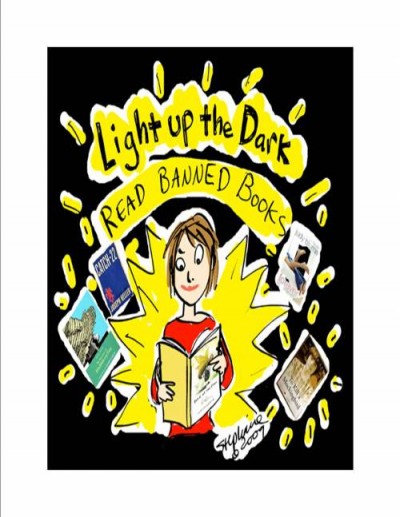 My friends are mostly lawyers, musicians, writers, speakers, businesspeople, and other educators. Before the edict went out, I often had one of them come to my classroom and talk about what they did all day, and then the students would ask questions. Silly me, I really thought it was helpful.
My friends are mostly lawyers, musicians, writers, speakers, businesspeople, and other educators. Before the edict went out, I often had one of them come to my classroom and talk about what they did all day, and then the students would ask questions. Silly me, I really thought it was helpful. Apparently, it was unfair to other students if one group got to have a speaker and others didn’t. I suggested that other teachers could just as easily invite a speaker into their classroom, too, but nobody else cared to go to the trouble, so I couldn’t, either.
Apparently, it was unfair to other students if one group got to have a speaker and others didn’t. I suggested that other teachers could just as easily invite a speaker into their classroom, too, but nobody else cared to go to the trouble, so I couldn’t, either. from an ant colony.
from an ant colony. Mamacita says: My mother hasn’t been feeling very well this week, so I’ve gone over there every night after school to bring her some food, do a few little chores, and make sure she’s still there. If you know what I mean. She’s still weak and shaky, as she’s described her own illnesses all our lives, but she’s getting better, thankyouforcaring.
Mamacita says: My mother hasn’t been feeling very well this week, so I’ve gone over there every night after school to bring her some food, do a few little chores, and make sure she’s still there. If you know what I mean. She’s still weak and shaky, as she’s described her own illnesses all our lives, but she’s getting better, thankyouforcaring.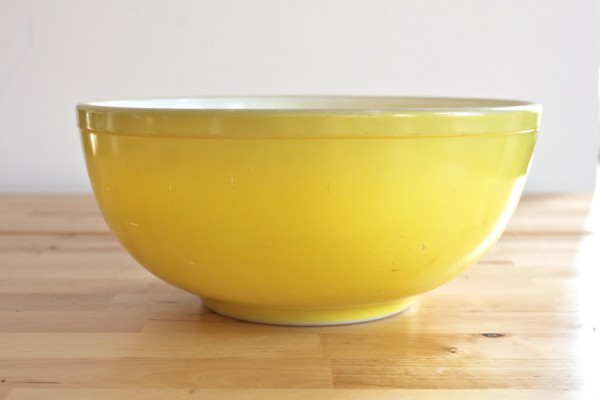 *Oh, and that big yellow Pyrex mixing bowl? She gave it to me. I break eggs into it now. Mom got the whole set of mixing bowls as a wedding gift in 1950. They’re, like, you know, old and stuff.
*Oh, and that big yellow Pyrex mixing bowl? She gave it to me. I break eggs into it now. Mom got the whole set of mixing bowls as a wedding gift in 1950. They’re, like, you know, old and stuff. Mamacita says: Hey, it’s THAT TIME again, so say “hello” to my annual post about how community school supplies are a terrible idea and are, in fact, contributing to the lazy downfall of our nation. . . . .
Mamacita says: Hey, it’s THAT TIME again, so say “hello” to my annual post about how community school supplies are a terrible idea and are, in fact, contributing to the lazy downfall of our nation. . . . .





